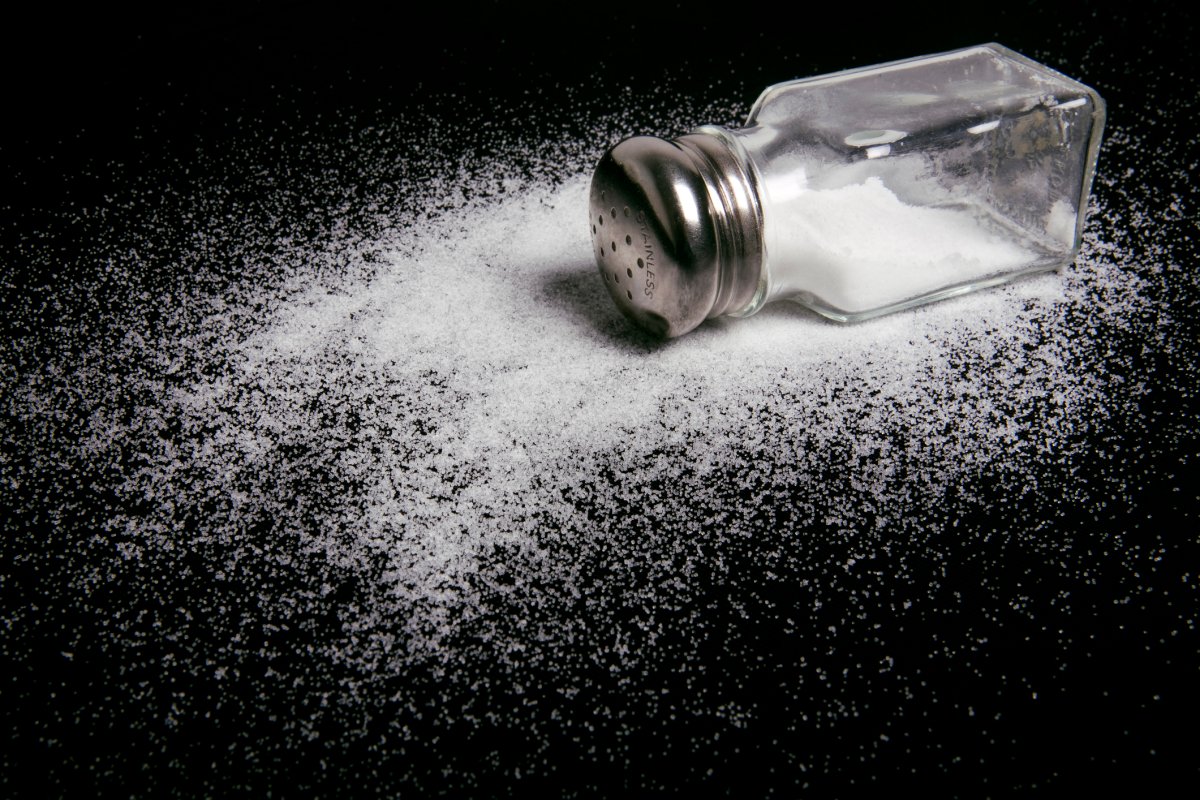Canadians on average eat about 3,400 milligrams of sodium per day — some 1,000 mg more than the daily maximum limit, the government of Canada reports.

On top of that, one in five Canadians over the age of 20 has been diagnosed with high blood pressure, 30 per cent of which is attributed to eating too much salt.
READ MORE: Signs you’re not getting enough calcium, vitamin A or vitamin D — and why it matters
With so much sodium present in many of the foods we eat, it’s tough to avoid consuming it on a daily basis.
“With our busy lives, we are reaching for more readily prepared and processed foods that are high in sodium,” registered dietitian Nicole Osinga explains. “However, it’s not just sodium that’s the issue — the more sodium something has, then likely the more processed and the less nutrient-dense it is.”
This can lead to health issues like high blood pressure, registered dietitian Tristaca Curley adds.
“In most people, the kidneys have trouble excreting excess sodium,” she explains. “High sodium intake causes the body to retain water to try to dilute the sodium. This water retention increases blood volume, and thus blood pressure.”
And over time, that extra work required by the heart to pump the increased blood volume can lead to a heart attack, heart failure and stroke, she adds.
“The biggest contributor of sodium in our diets is processed foods such as crackers, bread and processed meats,” registered dietitian Curley says. “Condiments, such as salad dressings and soy sauce, cheese and canned foods like tuna, beans and pasta sauce, are also huge contributors.”
And sometimes we actively seek out these salty foods in hopes to satisfy aggressive cravings — and there are several reasons why those cravings exist, both Osinga and Curley say.
According to Osinga, dehydration is probably the strongest reason why we might crave salt.
We also might be reaching for salty snack if we experience a lack of sleep, as it can increase levels of ghrelin, which can increase food cravings.
Boredom may also be the reason, or stress, as stress elevates cortisol, leading to further cravings.
- Capital gains changes are ‘really fair,’ Freeland says, as doctors cry foul
- Ontario doctors offer solutions to help address shortage of family physicians
- ‘Dangerous message’: Experts slam anti-sunscreen claims circulating online
- ‘Trying not to die’: Tourism operators loaded with debt despite rising demand
As well, excessive sweating can result in sodium losses.
READ MORE: Reality check: Is cooking with lard healthier than cooking with butter?
“Some elite athletes that I work with will crave salt after strenuous activity or on hot days,” Curley says. “This is likely due to losing a lot of sodium in sweat and not replacing enough with electrolyte mixtures.”
Habit is also another big culprit, Curley points out.
“If we are used to eating salty foods, then food won’t taste as good to us unless it’s heavily salted,” she says. “Our threshold for what tastes salty keeps getting higher. If we are able to cut back on our salt intake, over time we find that the threshold for what tastes salty decreases, and we can get by with less salt in our food.”
Lastly, salt cravings can sometimes be caused by underlying medical conditions, like adrenal insufficiency (also known as Addison’s disease) or Bartter’s syndrome.
(Addison’s disease is a disorder in which the body produces insufficient amounts of certain hormones produced by our adrenal glands, the Mayo Clinic says. Adrenal glands are small glands found on top of each kidney that produce sex hormones and cortisol, which helps you respond to stress and has other important functions, MedlinePlus explains. Bartter’s syndrome is a rare genetic disorder in which defects in the kidneys prevent the organs from reabsorbing salt, causing imbalances in electrolyte and fluid concentrations in the body, the National Organization for Rare Disorders says.)
There are ways to curb those hankerings, Osinga and Curley say.
First, address your feelings of stress, boredom and get more sleep, Osinga says. Stay well hydrated and if you do sweat excessively, try a homemade electrolyte rehydration solution.
Also try using fresh herbs when you cook, like chives, garlic and basil. They amp up the flavour without adding sodium. You can also try spices like cayenne or chili pepper.
“If we have high salt intake or high blood pressure, it’s important to choose more fresh fruits and vegetables, which are not only low in sodium, but high in potassium,” Curley says. “High potassium intakes can offset some of the damage done by sodium.”




Comments